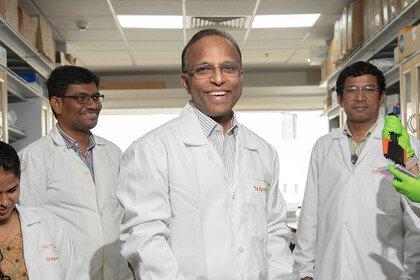
From evidence to progress: renewed global governance on AMR
This report outlines the governance model that is required to support sustainable and impactful action on AMR at national, regional and global levels.

Luuk Rombouts/Ideo
Antimicrobial resistance (AMR) is one of our greatest public health threats. We need collective, evidence-based action to control the escalating burden of drug-resistant infections.
Luuk Rombouts/Ideo
Antimicrobial resistance (AMR) occurs when bacteria, fungi or viruses change in a way that makes the drugs used to treat them ineffective.
These drug-resistant infections are much harder – if not impossible – to treat and cure. They cause over a million deaths every year, and projections suggest this will increase significantly over the next few decades. By 2030, the health impacts of AMR could lead to a US $3.4 trillion annual shortfall in global GDP [PDF 3.8MB].
However, the effects are not experienced equally. Low- and middle-income countries have the highest burden of drug-resistant infections.
For example, in sub-Saharan Africa, nearly 1 in 1,000 deaths are already associated with bacterial antimicrobial resistance, compared to half as many in high-income countries.
While there has been some progress in tackling AMR in recent years, it isn’t enough. The global response remains too weak and fragmented to manage the growing burden of disease.
At the 79th UN General Assembly, world leaders committed to a clear set of global targets and the creation of an independent evidence panel.
Now, we need to see these commitments translated into action.
A more ambitious and globally coherent approach will be critical to tackle the increasing threat of antimicrobial resistance.
We support science to tackle the biggest barriers to controlling infectious disease in the most affected communities. This includes research to better understand the global burden of AMR and accelerate the development of new interventions.

This report outlines the governance model that is required to support sustainable and impactful action on AMR at national, regional and global levels.

Hear from Dr. Anand Anandkumar, co-founder of Bugworks. The team at Bugworks (an organisation part funded by Wellcome) are one of a handful of groups worldwide working on next-generation broad-spectrum antibiotics.

This report gives an update on the status quo, recent developments and remaining critical gaps in the AMR response globally.
For information, contact Jeremy Knox, Head of Policy, Infectious Disease at Wellcome.
Stay up to date with some of the biggest stories in global health, and how we're advocating to improve health for everyone.